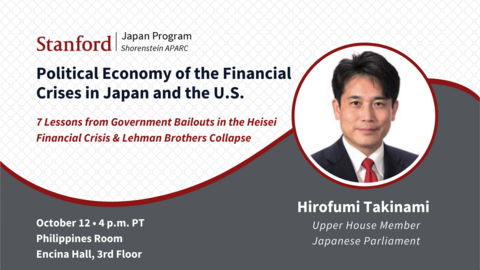Please join us for a talk with Steven Levitsky & Daniel Ziblatt to celebrate the launch of CDDRL's new Program on Identity, Democracy, and Justice.
Harvard University professors Steven Levitsky and Daniel Ziblatt are the New York Times best-selling authors of How Democracies Die. On January 11, Levitsky and Ziblatt will discuss their newest book, Tyranny of the Minority: Why American Democracy Reached the Breaking Point (Crown, 2023). In a moderated conversation with Professors Hakeem Jefferson (Stanford University) and Jake Grumbach (UC Berkeley) and an audience Q&A, Levitsky and Ziblatt will offer a framework for understanding the current crisis in America's democracy.
In Tyranny of the Minority, Steven Levitsky and Daniel Ziblatt issue an urgent call to reform and save our nation's democracy. Drawing on historical examples from the U.S. and other countries, they show audiences why and how political parties turn against democracy, why this has happened in the U.S., and how our country’s antiquated institutions have made the problem worse. They call for the awakening of a longstanding American tradition of working to make our political system more democratic, so that we can realize our nation’s promise of a democracy for all.
ABOUT THE SPEAKERS
Steven Levitsky is David Rockefeller Professor of Latin American Studies and Professor of Government. He is also Director of the David Rockefeller Center for Latin American Studies at Harvard. His research focuses on democratization and authoritarianism, political parties, and weak and informal institutions, with a focus on Latin America, as well as the crisis of democracy in the United States. He is co-author (with Daniel Ziblatt) of How Democracies Die, which was a New York Times Best-Seller and was published in 29 languages, and Tyranny of the Minority: Why American Democracy Reached the Breaking Point. He has written or edited 11 other books, including Transforming Labor-Based Parties in Latin America: Argentine Peronism in Comparative Perspective (Cambridge University Press 2003), Competitive Authoritarianism: Hybrid Regimes after the Cold War (with Lucan Way) (Cambridge University Press, 2010), Revolution and Dictatorship: The Violent Origins of Durable Authoritarianism (with Lucan Way) (Princeton University Press, 2022). He and Lucan Way are currently working on a book on democratic resilience across the world.
Daniel Ziblatt is Eaton Professor of Government at Harvard University and director of the Transformations of Democracy group at Berlin's Social Science Center ( WZB Berlin Social Science Center ). He is the author of four books, including “How Democracies Die” (2018), co-authored with Steve Levitsky, a New York Times best-seller and described by The Economist magazine as "the most important book of the Trump era." The book has been translated into thirty languages. In 2017, he authored Conservative Parties and the Birth of Democracy (Cambridge University Press), an account of the history of democracy in Europe, which won the American Political Science Association's 2018 Woodrow Wilson Prize for the best book in government and international relations. His newest book (co-authored with Steven Levitsky), Tyranny of the Minority (2023), was also a New York Times bestseller. In 2023, Ziblatt was elected a member of the American Academy for Arts and Sciences.
ABOUT THE MODERATORS
Hakeem Jefferson is an assistant professor of political science at Stanford University, where he is also a faculty affiliate with the Center for Comparative Studies in Race and Ethnicity and the Center on Democracy, Development, and the Rule of Law. He is the faculty director of the Program on Identity, Democracy, and Justice at CDDRL.
As an interdisciplinary scholar, Jefferson sets out to bring theoretical and empirical rigor to the study of social, psychological, and political processes that showcase the various ways identities and identity-based concerns shape all aspects of our lives. He is at work on his first book, tentatively titled Respectability: Identity, Stigma, and the Politics of Punishment among Black Americans.
He received his PhD in political science from the University of Michigan and a Bachelor of Arts in political science and African American Studies from the University of South Carolina. He writes frequently for public outlets and is a proud product of South Carolina public schools.
Jake Grumbach is an associate professor at the Goldman School of Public Policy at UC Berkeley. He was previously associate professor of political science at the University of Washington and a postdoctoral fellow at the Center for the Study of Democratic Politics at Princeton.
He studies the political economy of the United States, with interests in democratic institutions, labor, federalism, racial and economic inequality, and statistical methods. His book, Laboratories Against Democracy (Princeton University Press 2022), investigates the causes and consequences of the nationalization of state politics.
Before graduate school, he earned a B.A. from Columbia University and worked as a public health researcher. Outside of academia, he's a nerd for 70s funk/soul and 90s hip hop, as well as a Warriors fan.













